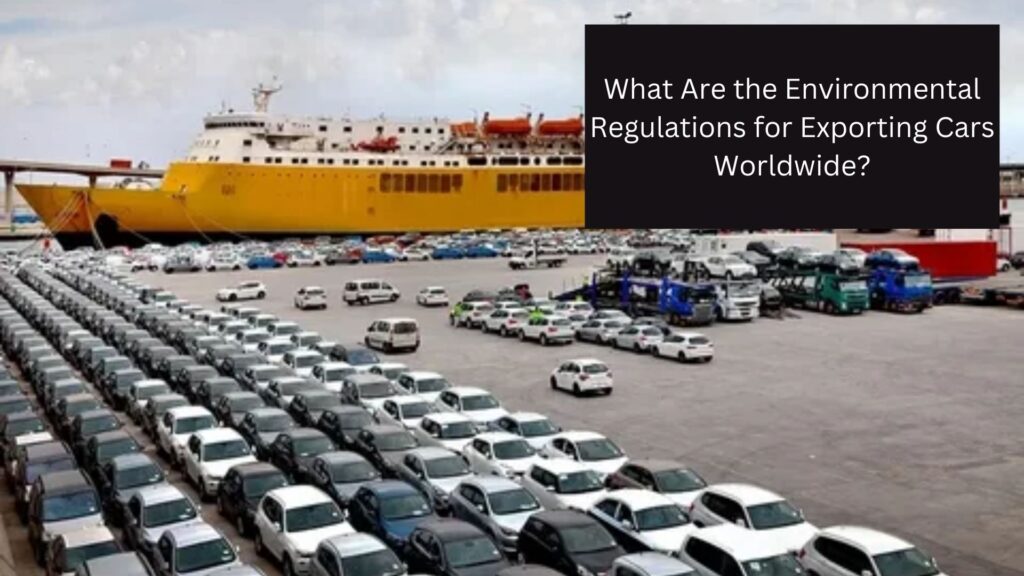As global environmental concerns continue to rise, industries are seeking sustainable practices to minimize their ecological footprint. The automotive industry, in particular, has made significant strides in reducing waste and pollution through car recycling. By recycling old and unused vehicles, the industry not only saves valuable resources but also helps mitigate environmental harm. In this article, we will explore the various environmental benefits of car recycling and how it contributes to a cleaner and greener future
How Car Recycling Reduces Landfill Waste
Millions of vehicles are retired each year, and without proper recycling, these cars would end up in landfills, consuming vast amounts of space. Car recycling offers an efficient solution to this problem by salvaging usable materials and properly disposing of hazardous components.
Car recycling facilities, such as Best car recyclers Townsville, play a critical role in breaking down vehicles into reusable parts. Metals like steel and aluminum are extracted, processed, and repurposed, significantly reducing the volume of waste sent to landfills. Additionally, components like tires, batteries, and engine fluids are recycled, preventing harmful substances from seeping into the soil and water.
By recycling cars instead of discarding them, the automotive industry contributes to a circular economy, where resources are continuously reused, minimizing environmental degradation.
Energy Conservation Through Car Recycling
The production of new materials, especially metals, is energy-intensive. Mining, refining, and manufacturing raw materials consume significant amounts of energy and emit greenhouse gases. Car recycling, however, reduces the need for virgin material production by reusing metals and other components.
For instance, recycling steel from old vehicles saves up to 74% of the energy required to produce new steel. Facilities like car recyclers Townsville ensure that metals are efficiently processed and returned to the supply chain. This not only conserves energy but also reduces the carbon footprint associated with mining and manufacturing.
Moreover, energy savings from recycling contribute to overall environmental preservation, as fewer fossil fuels are burned during the production process.
Reduction of Air and Water Pollution
Improper disposal of end-of-life vehicles can lead to significant air and water pollution. Vehicles contain hazardous materials, such as oil, coolant, brake fluid, and transmission fluid, which can leak into the environment if not handled correctly. These substances contaminate groundwater and harm aquatic ecosystems.
Car recycling facilities are equipped to safely extract and recycle these fluids, preventing environmental contamination. Additionally, recycling old car batteries, which contain lead and acid, ensures that these harmful materials do not end up in landfills.
By partnering with environmentally responsible facilities like car recyclers Townsville, communities can reduce the impact of automotive waste on air and water quality. Proper recycling ensures that pollutants are contained and disposed of in compliance with environmental regulations.
Preservation of Natural Resources
Car recycling plays a vital role in conserving natural resources. Mining for metals such as iron, aluminum, and copper not only depletes finite resources but also disrupts ecosystems and contributes to deforestation. By recycling materials from old vehicles, the demand for mining is reduced, preserving the earth’s natural wealth.
Steel, one of the most commonly used materials in vehicles, can be recycled indefinitely without losing its properties. Facilities like car recyclers Townsville specialize in recovering and processing metals, ensuring they are reused in manufacturing new vehicles and other products.
This sustainable approach reduces the strain on natural resources while promoting responsible consumption. By choosing recycled materials, industries can meet their production needs without further harming the planet.
Minimizing Greenhouse Gas Emissions
Greenhouse gas emissions are a leading cause of climate change, and the automotive industry is a significant contributor. From manufacturing vehicles to disposing of them, emissions are released at every stage of a car’s lifecycle.
Car recycling helps minimize these emissions in several ways. First, recycling reduces the need for raw material extraction, which involves energy-intensive mining and processing activities. Second, reusing materials like steel and aluminum significantly lowers the energy required for production, as recycled metals consume less energy than producing new ones.
Facilities such as car recyclers Townsville actively contribute to reducing the automotive industry’s carbon footprint by ensuring materials are recycled efficiently. By opting for recycled parts and materials, manufacturers can significantly reduce greenhouse gas emissions associated with new vehicle production.
Creating a Circular Economy in the Automotive Industry
The concept of a circular economy revolves around keeping resources in use for as long as possible. Car recycling is a perfect example of this approach, as it extends the lifecycle of materials and reduces the need for new resources.
When vehicles reach the end of their useful life, they are dismantled, and their components are sorted for recycling or reuse. Parts such as engines, transmissions, and catalytic converters are refurbished and resold, while metals are melted down and repurposed. Facilities like car recyclers Townsville play a key role in this process by ensuring that vehicles are recycled responsibly and efficiently.
By integrating recycling into the automotive industry, a circular economy can be achieved, where waste is minimized, and resources are continually reused. This not only benefits the environment but also creates economic opportunities in the recycling and manufacturing sectors.
Economic Benefits of Car Recycling
Beyond its environmental advantages, car recycling also offers economic benefits. Recycling old vehicles generates jobs in dismantling, processing, and manufacturing recycled materials. It also provides affordable spare parts for consumers, reducing the need for expensive new components.
Businesses like car recyclers Townsville contribute to local economies by creating employment opportunities and supporting industries that rely on recycled materials. Additionally, recycling reduces the cost of manufacturing new vehicles, as recycled metals and parts are often cheaper than their virgin counterparts.
By promoting car recycling, governments and communities can foster sustainable economic growth while protecting the environment.
Encouraging Sustainable Consumer Practices
Car recycling also encourages consumers to adopt more sustainable practices. When vehicle owners choose to recycle their cars instead of abandoning or scrapping them improperly, they contribute to reducing environmental harm.
Awareness campaigns by facilities like car recyclers Townsville educate the public about the benefits of recycling and how it can positively impact the planet. These initiatives inspire consumers to make environmentally conscious decisions, such as purchasing vehicles made with recycled materials or opting for refurbished car parts.
By fostering a culture of sustainability, car recycling can drive long-term environmental and social benefits.
Innovations in Car Recycling Technologies
Advancements in recycling technologies have further enhanced the environmental benefits of car recycling. Modern facilities use sophisticated machinery to extract and process materials more efficiently, ensuring minimal waste.
For example, shredders are used to break down vehicles into smaller pieces, which are then sorted using magnets, sensors, and other technologies. This allows for the precise separation of metals, plastics, and other materials, maximizing recycling rates.
Companies like Scrap Car Removal in Townsville are at the forefront of adopting these innovative technologies, ensuring that the recycling process is both efficient and environmentally friendly. As technology continues to evolve, the potential for even greater environmental benefits through car recycling increases.
Conclusion: A Sustainable Future Through Car Recycling
Car recycling is a critical component of the global effort to reduce waste and pollution. By recycling old vehicles, we can conserve natural resources, reduce greenhouse gas emissions, and minimize environmental contamination. Facilities like car recyclers Townsville play a vital role in ensuring that end-of-life vehicles are processed responsibly and sustainably.
As consumers and industries embrace car recycling, the automotive sector can transition toward a more circular economy, where resources are reused, and waste is minimized. By choosing sustainable practices, we can protect the planet for future generations while supporting economic growth and innovation.
The environmental benefits of car recycling are undeniable. With continued advancements in technology and increased public awareness, the potential for a cleaner and greener future is within reach. Together, we can drive change and ensure that car recycling remains a cornerstone of environmental sustainability.




